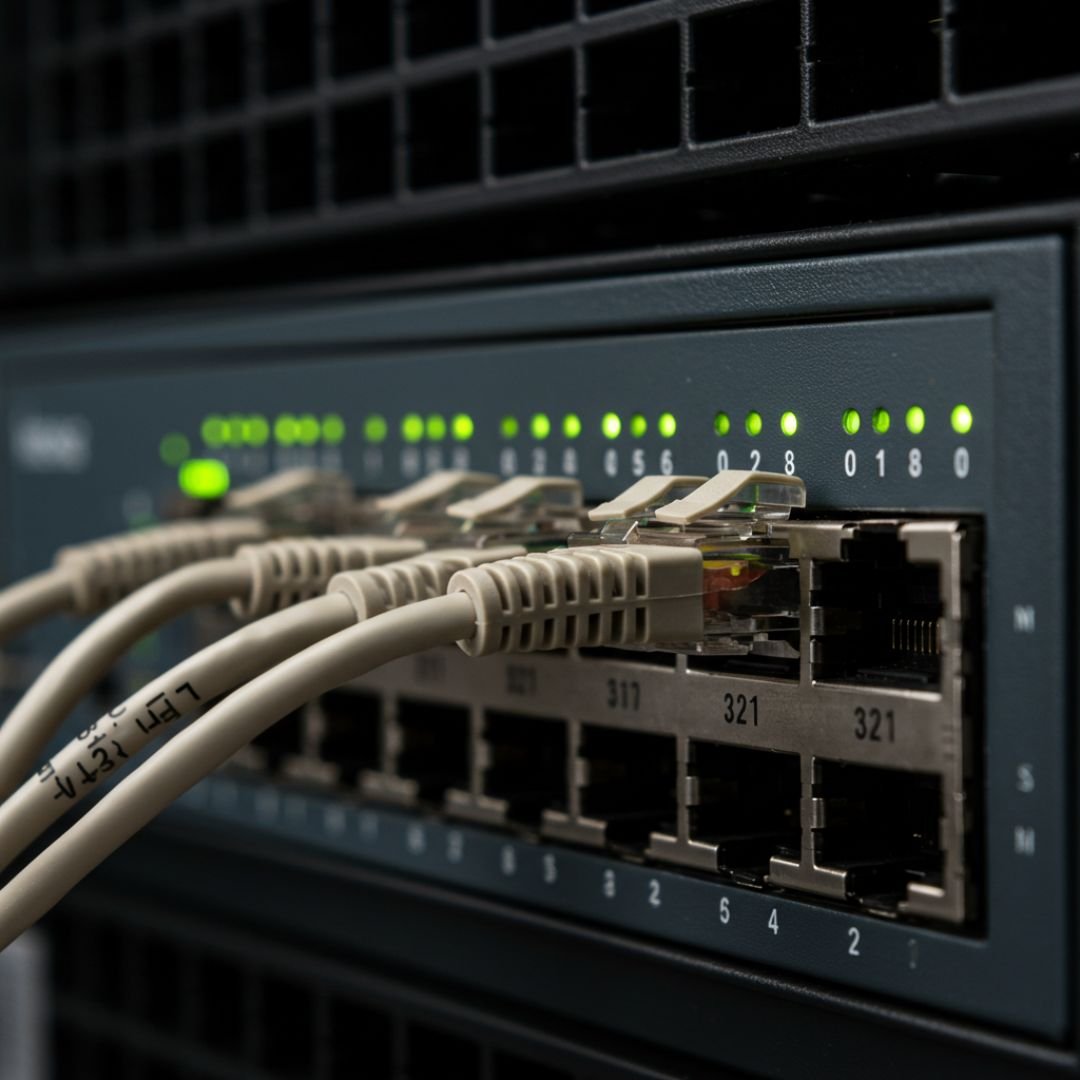PoE Switches: Simplifying Power and Connectivity
Streamline your IP camera installation by delivering both data and electrical power through a single, efficient ethernet cable.
The Foundation of Your System's Performance
A network switch is the core component that directs traffic for your IP CCTV system. By choosing a Power over Ethernet (PoE) model, you create a more efficient, cost-effective, and flexible infrastructure for your security cameras. This technology is key to a clean and professional installation.
Choosing the right model ensures uninterrupted video streaming, gives you freedom in camera placement, and guarantees long-term reliability for your entire system.
Expert Tip: For outdoor or industrial environments, always select PoE switches with built-in surge protection to safeguard your investment against electrical damage.

Benefits of PoE Switches
One Cable, Two Functions
Dramatically simplify installation by combining power and network connectivity into a single ethernet cable.
High-Speed Transmission
Gigabit speeds ensure smooth, high-resolution, and lag-free video from all your IP cameras.
Scalability
Available with multiple port options to support systems of any size, from small offices to large enterprises.
Reliability
Professional-grade switches are engineered for continuous, mission-critical operation, ensuring system uptime.
Ready to Simplify Your Installation?
Simplify Your Installation with the Right PoE Switch – Contact Us TodayFrequently Asked Questions
PoE switches significantly reduce cabling complexity by delivering both power and data through a single ethernet cable. This lowers installation costs, reduces potential points of failure, and simplifies overall system maintenance.
Standard PoE (like IEEE 802.3af/at) supports cable runs of up to 100 meters (328 feet) without any signal or power degradation, providing ample flexibility for most camera placements.
The vast majority of modern IP cameras are designed to support standard PoE. However, it is always best practice to confirm compatibility and power requirements (e.g., PoE, PoE+) before finalizing your installation plan.
